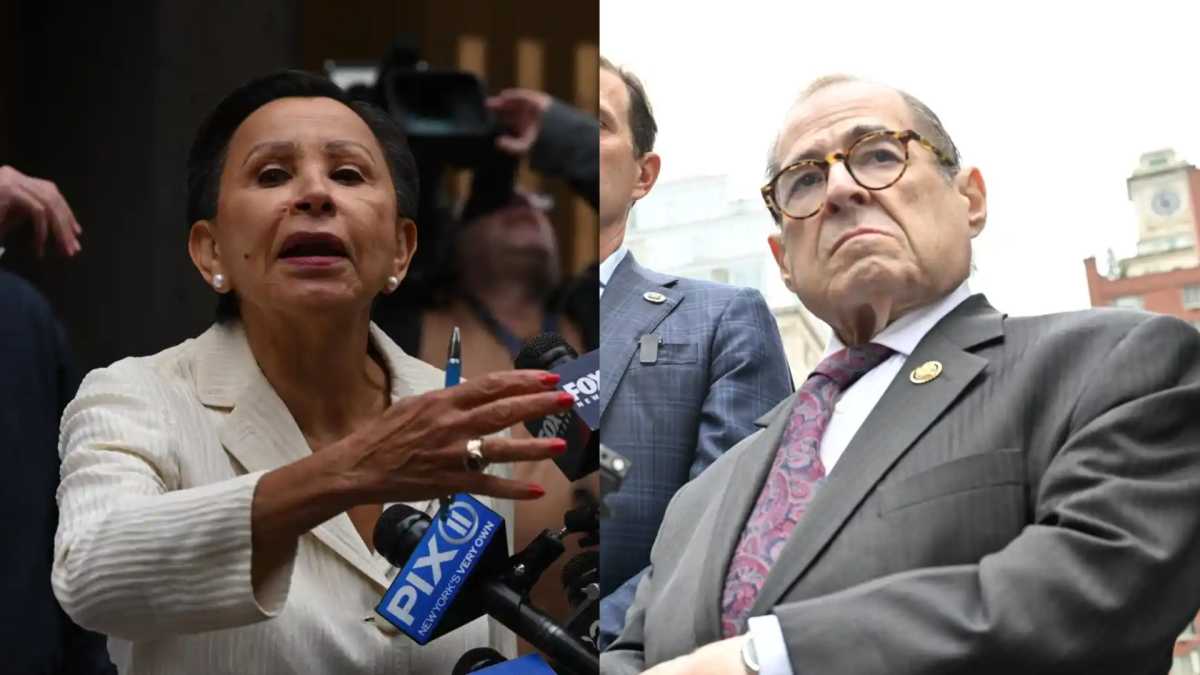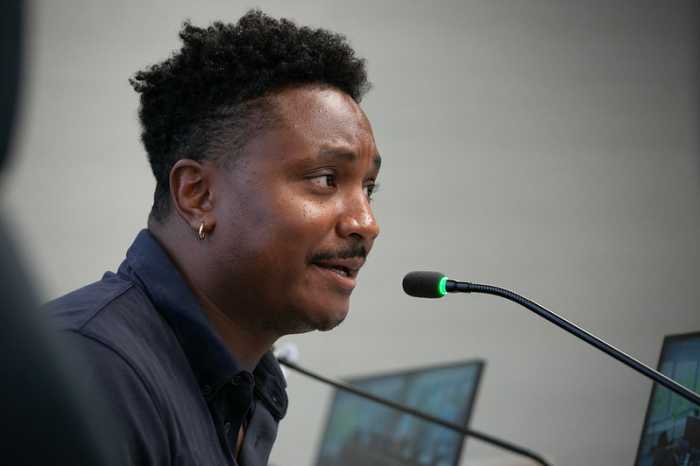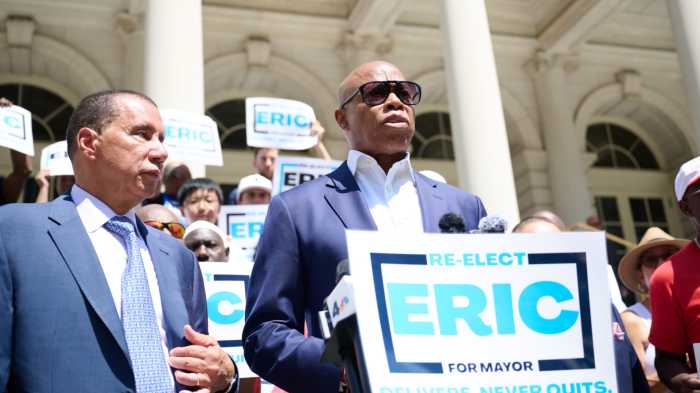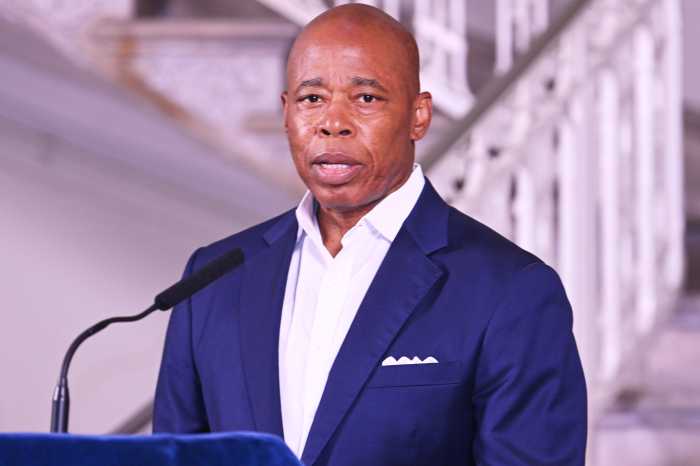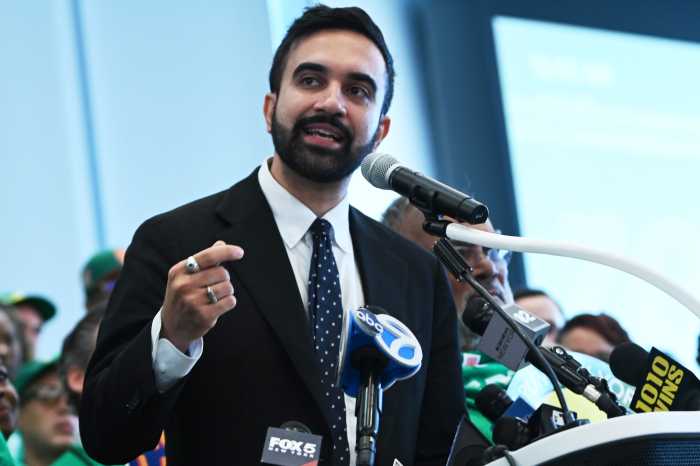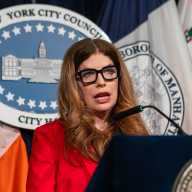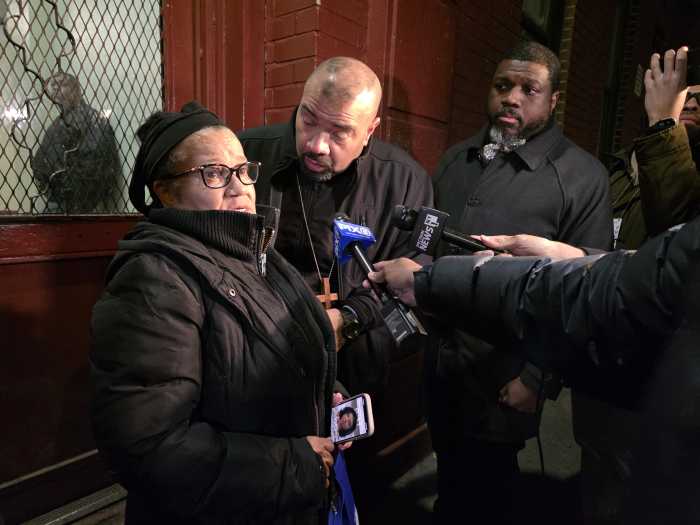A changing of the guard is underway within New York City’s predominantly Democratic congressional delegation, with several members either retiring or facing primary challenges in 2026.
U.S. Rep. Nydia Velázquez, whose district covers parts of north Brooklyn and western Queens, became the second longtime incumbent in the New York City delegation to announce she will not be seeking reelection next year on Thursday night. Both Velázquez and U.S. Rep. Jerry Nadler (D-Manhattan), who made the same announcement in September, cited the need to pass the torch onto a new generation of party leaders.
At the same time, no fewer than four other incumbents — House Minority Leader Hakeem Jeffries (D-Brooklyn), and Reps. Adriano Espaillat (D-Manhattan/Bronx), Dan Goldman (D-Manhattan/Brooklyn), and Ritchie Torres (D-Bronx) — are facing primary challenges from their left.
The apparent shakeup comes shortly after democratic socialist Zohran Mamdani defeated the Democratic Party establishment pick, former Gov. Andrew Cuomo, in both the party’s primary and the general election. Though establishment Democrats mostly coalesced around Mamdani for the general election, it has not quelled the insurgency from the left — and from the young and restless of New York politics.
It also speaks to the broader internal fight that Democrats have been engaged in nationally for more than a year, since President Donald Trump defeated former Vice President Kamala Harris in the 2024 presidential election.
Angst over the outcome of that election, and dissatisfaction with how Democratic congressional leaders such as Jeffries and US Sen. Chuck Schumer have responded to Trump’s agenda at times, have fueled that fight over the party’s future, with both the 2026 midterms and the 2028 presidential race top of mind.
Youth movement among NYC Democrats
Age isn’t just a number; it is also a factor in the current sea change, according to progressive political strategist Camille Rivera.
She pointed to New York’s Congressional delegation skewing older and the fact that its members have cultivated a group of younger pols who can continue their work. The retiring Nadler is 74; Velazquez is 72. Both have been in Congress for more than 30 years.
“We have a lot of Congressional leaders and electeds that are older and are taking into consideration when it’s time for them to move on,” Rivera told amNewYork. “Many of them feel like they have created a good bench, in particular in Democratic strongholds that no matter what, the district will be represented well.”
Rivera pointed specifically to the pols that Velázquez has mentored. That group includes Brooklyn Borough President Antonio Reynoso as well as City Council Members Jennifer Gutiérrez (D-Brooklyn) and Lincoln Restler (D-Brooklyn).
“I love this work and I love my district, but I believe now is the right moment to step aside and allow a new generation of leaders to step forward,” Velázquez told The New York Times, which first broke the news on Thursday. “After devoting so much energy and so much time to help elect young leaders, I feel at ease.”
While it is still unclear who will run for Velázquez’s seat, some of those who are reportedly considering it include Reynoso, Gutiérrez, and state Sen. Julia Salazar (D-Brooklyn).
The wild and crowded 12th District race
Nadler has similarly mentored younger lawmakers and is backing one protégé who is seeking to replace him: Upper West Side Assembly Member Micah Lasher. Additionally, many of the other candidates who have already launched campaigns for Nadler’s seat are either millennials or part of Gen Z.
No fewer than 10 candidates are vying to replace Nadler, including Assembly Member Alex Bores; City Council Member Erik Bottcher; Jack Schlossberg, grandson of President John F. Kennedy; and Cameron Kasky, a podcaster and co-founder of the March for Our Lives PAC formed in the wake of a mass shooting at a high school Parkland, FL in 2018.
Basil Smikle, a former head of the state Democratic Party and a professor at Columbia University, posited that Velázquez’s and Nadler’s retirements are part of a larger recognition by the Democratic coalition that it is changing.
“With that comes a recognition by some electeds that maybe it’s their turn with this younger generation, sort of pushing up,” Smikle said. “And the larger important point that the party itself needs to find a way to not only capture the enthusiasm and the momentum from these young voters, but have more electeds that represent their interests and are reflective of their communities.”
The taxing toll of the Trump era
John Mollenkopf, a political scientist and director of CUNY’s Center for Urban Research, speculated that another reason why Velázquez and Nadler may be looking to step aside now is that being a longtime incumbent Democrat in Congress has hardly ever been tougher.
He pointed to the difficulty of serving in the Democratic minority under Republican President Donald Trump, who has sought to erode many of the policy wins they have notched over the years.
“Why would you want to persist in a job where all your past efforts have been stymied and the future doesn’t look immediately promising, especially when you’re in your 70s?” Mollenkopf said.
When it comes to the new wave of primary challenges against incumbents, Mollenkopf said those are “healthy” for Democracy.
However, he noted that Jeffries and Espaillat are likely to overcome their younger left-leaning challengers: Brooklyn City Council Member Chi Ossé and Harlem organizer Darializa Avila Chevalier, respectively.
“It’s hard to imagine that a political science graduate student from Columbia is going to knock off one of the more impressively rising, certainly the most important, Dominican-origin politicians in New York City and down in Washington,” Mollenkopf said of Avila Chevalier’s chances against Espaillat.
“But it’ll lead to a healthy debate around what the Democratic Party establishment is or isn’t doing for their constituencies,” he added.



